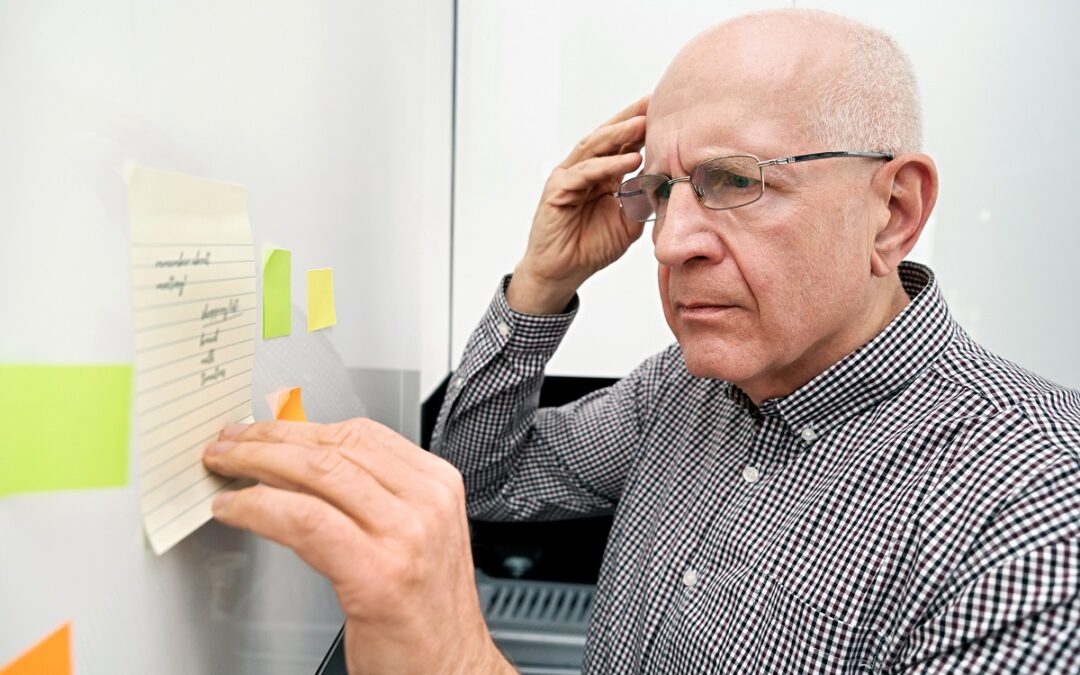Do you often misplace your keys, your glasses or your cell phone? Do you sometimes have trouble remembering what you ate for breakfast? Do you find yourself telling someone a story and they remind you that you already told them the same story yesterday? Short-term memory loss is unfortunately a natural part of the aging process, but what can you do to combat it? And how do you know when it indicates a more serious medical problem?
Why we experience forgetfulness as we age
As people get older, changes in the brain can cause mild symptoms of memory loss. The hippocampus region of the brain, which is responsible for forming and retrieving memories, often deteriorates with age. In addition, hormones and proteins that protect and repair brain cells and stimulate neural growth also decline with age. On top of that, older people often experience less blood flow to the brain which can affect memory and cognitive skills.
The difference between normal forgetfulness and dementia or Alzheimer’s disease
The following table from the National Institute on Aging shows the difference between memory loss due to aging and memory loss that can indicate a medical problem like dementia or Alzheimer’s disease.
Normal Aging Alzheimer’s Disease
| Making a bad decision once in a while | Making poor judgments and decisions a lot of the time |
| Missing a monthly payment | Problems taking care of monthly bills |
| Forgetting which day it is and remembering it later | Losing track of the date or time of year |
| Sometimes forgetting which word to use | Trouble having a conversation |
| Losing things from time to time | Misplacing things often and being unable to find them |
Source for table above: https://www.nia.nih.gov/health/do-memory-problems-always-mean-alzheimers-disease
Basically, the primary difference between age-related memory loss and more serious medical problems is in the effect on your ability to function. While normal memory loss is an occasional nuisance, dementia and Alzheimer’s cause a persistent and disabling decline in memory and function that disrupts work, hobbies, social activities and relationships. If you feel that you or a loved one is experiencing these serious symptoms of memory loss, consult your doctor, who can determine if there is a medical problem and make recommendations for treatment.
Tips for combatting normal age-related memory loss*
There are some simple steps you can take. Here are some tips offered by HelpGuide that can help you improve your memory and your cognitive functioning: (source: https://www.helpguide.org/articles/alzheimers-dementia-aging/age-related-memory-loss.htm)
- Stay social: Engaging with family and friends keeps your mind occupied and reduces stress
- Eat healthy: Eat plenty of fruits and vegetables and drink green tea, all of which contain antioxidants that keep your brain from “rusting.” Foods rich in omega-3 fats, such as salmon, tuna, trout, walnuts and flaxseed, are also good for the brain and memory.
- Don’t smoke: Smoking increases the risk of vascular disorders that can constrict the arteries that deliver oxygen to the brain.
- Get enough sleep: Adequate sleep is important for the process of forming and storing memories that you can retrieve later. Sleep deprivation reduces the growth of new neurons in the brain and causes problems with memory, concentration and decision-making.
- Exercise your body: A regular exercise routine can reduce your risk of developing dementia by up to 50%.
- Exercise your brain: Just like your muscles, your brain loses power when it’s inactive. Find brain exercises that you enjoy, such as games like chess, bridge, scrabble, or word puzzles; read books, newspapers or magazines; learn new things like recipes, a language, a musical instrument, or any subject that interests you; or take on a new project that requires design or planning. You can also try AARP’s Staying Sharp Brain Health Challenges by visiting stayingsharp.aarp.org
*Do not start any new diet or exercise program without first consulting your doctor.


